Immigration enforcement has moved from the periphery of Wyoming’s politics to center stage. Governor Mark Gordon’s decision to align with federal authorities through new agreements with US Immigration and Customs Enforcement (ICE), including a 287(g) partnership with the Highway Patrol and the activation of National Guard troops, has sparked fierce debate. On one side are those who view this as a logical extension of law-and-order priorities; on the other are critics who see it as an ethical misstep, a legal overreach, and a costly gamble for a state with a relatively small immigrant population.
Governor Gordon’s move reflects a broader national trend among Republican-led states to show solidarity with President Donald Trump’s aggressive immigration agenda. By signing agreements with ICE and activating Guard personnel, Wyoming joins 20 states deploying resources in support of mass deportation operations.
For Gordon, the choice is framed as both a patriotic duty and a practical necessity. Wyoming’s vast highway system, from I-80 to I-25, is pitched as a critical corridor for human trafficking, drug smuggling, and unlawful migration. Supporters, like Jessica M. Vaughan, Center for Immigration Studies Director of Policy Studies, argue that empowering Wyoming troopers with 287(g) authority means they can directly confront illicit activity that crosses state lines.
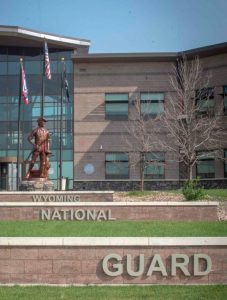
“By enrolling in the acclaimed 287(g) program, the highway patrol will have the ability to address human smuggling, human trafficking, and other illicit activities involving non-citizens, which are often difficult for local law enforcement agencies to handle. The criminal organizations that are using Wyoming highways as a conduit for illegal activity are endangering everyone else using those roads, and they are dependent on free use of the highways to transport their victims, their illicit cargo, and their operatives. They hide behind false identities, and now Wyoming troopers will be trained to identify them and have the authority to take them off the roads if they are in the country illegally. Anyone who is here illegally and committing crimes should be prosecuted and then removed — and now that is much more likely to happen if they are caught in Wyoming,” she wrote in a statement to Wyoming Star.
Politically, the governor’s strategy plays well with constituents who prioritize border security and national defense. It positions Wyoming not as a bystander but as an active partner in a federal mission. For Republicans, it’s a visible statement: the Equality State is standing firm against what they see as the failures of federal immigration policy under previous administrations.
But immigration enforcement is not just a matter of political positioning—it’s also an ethical debate. Critics point out that Wyoming’s immigrant population is relatively small, making up just 3.6% with the noncitizen immigrant share being 2.0%. Many of these residents are lawful permanent residents or naturalized citizens. For them, the expansion of enforcement feels disproportionate and unnecessary.
Libby Skarin, the ACLU of Wyoming’s executive director, opposes the current crackdown:
“The federal government has indicated that mass deportations are a priority for the current administration. However, what the federal government wants is not what’s best for Wyoming. Compliance with ICE will not improve public safety or protect our state and, in fact, puts politics over the best interests of Wyoming.”
She cites national evidence that 287(g) programs lead to racial profiling, civil rights violations, and strained relationships between immigrant communities and law enforcement.
“A culture of suspicion and division in Wyoming serves no one. We are stronger when we find ways to encourage participation and contribution, not ways to divide, exclude and discriminate. Most of us can agree that the federal government needs to do much better on immigration policy and identify real solutions that are orderly, humane and fair. This agreement handed down from Cheyenne turns the Wyoming Highway Patrol into an extension of the federal government and puts officers and their communities at risk while depleting much needed resources. Instead of imposing the federal government’s wishes upon every community in Wyoming, we encourage local control and support the right of local law enforcement to put the needs of their communities first by declining to participate in unnecessary, voluntary immigration enforcement,” Skarin’s statement concludes.

The ethical critique goes further: fear spreads quickly. Reports from across Wyoming already describe immigrant families skipping grocery trips, empty seats at public events, and employees too frightened to show up at work. The ACLU warns that using the National Guard to provide even “logistical support” to ICE could heighten this climate of fear, draining communities of trust and stability.
However, at stake is not only how the state treats undocumented residents, but also how citizens who resemble or live alongside immigrant populations are perceived and treated. Ethical opponents argue that public safety is not enhanced when entire groups of people—citizen and noncitizen alike—feel targeted and silenced.
The legal side of this debate is equally complicated. Wyoming is not a border state, and historically, the National Guard has been called to the southern border only at the request of other states. Raquel E. Aldana, Martin Luther King Jr. Professor of Law at UC Davis School of Law, responds to the potential effectiveness using other agencies in immigration enforcement:
“The Trump administration is also currently engaging in a vast system of facilitating expeditious removal that would mandate detention and curb nearly all due process. All of this is being contested by lawyers, although the Supreme Court forced individualized habeas in the jurisdiction where the detention took place. Many immigrants may not have access to lawyers. So this is all to say that the machinery has been built to make this system ‘effective’ in the narrow sense. But even effectiveness is challenged. Raids are inherently problematic in that they are usually conducted based on profiling against populations suspected of being in the US without authorization, as opposed to targeted enforcement with warrants. If this is the plan, the ‘effectiveness’ is challenged by the collateral socio-economic damages to Wyoming. Fear of being ‘caught’ up in the dragnet, even by citizens who may be ‘mistaken’ as foreign based on looks and language and geographic location will mean that people will not go out and businesses will be hurt. Also, the removal of workers from the economy is potentially another way to measure ‘effectiveness’.”
Prof. Aldana highlights that Wyoming law, much like the federal Posse Comitatus Act, places limits on how the National Guard can be used in domestic law enforcement. Deploying Guard members to assist ICE inside Wyoming raises questions about whether Gordon’s move stretches those limits.
“There is no emergency in Wyoming that warrants the Governor deciding to call forth the National Guard in this way. This violates state law and may be challenged in court as will the likelihood that raids will lead to racial and other types of unconstitutional profiling. This all means litigation, delays, and costs that challenge the ‘effectiveness’ of the strategy.”
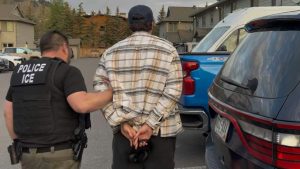
On paper 15 national guardsmen are to be use immigration raids, largely to provide logistical support to “free up” ICE agents to do the direct law enforcement. However recent ICE operations in Wyoming illustrate the reality behind the rhetoric. During one sweep in Jackson and surrounding towns, officers arrested individuals ranging from those with DUI convictions to others with no criminal records at all. Families were left in tears; workers vanished from their jobs; neighbors watched as SUVs carried away community members.
ICE officials frame these operations as necessary to remove dangerous individuals, yet data tells a more complex story. According to the Deportation Data Project, most immigrants arrested in Wyoming and Colorado this year had no criminal convictions. Those with convictions were often guilty of nonviolent crimes, such as drunk driving. Advocates argue that this contradicts claims that enforcement targets “the worst of the worst.”
For businesses, the implications are equally stark. In rural Wyoming, where labor shortages are common, the removal of even a small number of immigrant workers can disrupt local economies. Hospitality, agriculture, and service industries, in particular, depend on immigrant labor. Critics argue that destabilizing this workforce in the name of enforcement could undermine the very communities enforcement is supposed to protect.
The state now finds itself at a crossroads. Supporters of Gordon’s approach believe that the partnership with ICE strengthens Wyoming’s hand against crime, protects highways, and affirms the state’s role in national security. Detractors see it as a dangerous precedent that entangles Wyoming in a divisive federal agenda, raises serious ethical and legal concerns, and risks damaging local communities.
What’s clear is that immigration enforcement in Wyoming is no longer a distant federal matter. It is a local issue, shaping the state’s politics, its economy, and its social fabric. Whether Wyoming emerges stronger or more divided will depend not only on how many arrests are made, but on how well it balances the competing demands of law, ethics, and politics.
For now, the debate is far from settled—and Wyoming, with its small immigrant population but outsized political influence, may become a test case for how deeply states should involve themselves in the federal government’s deportation machinery.
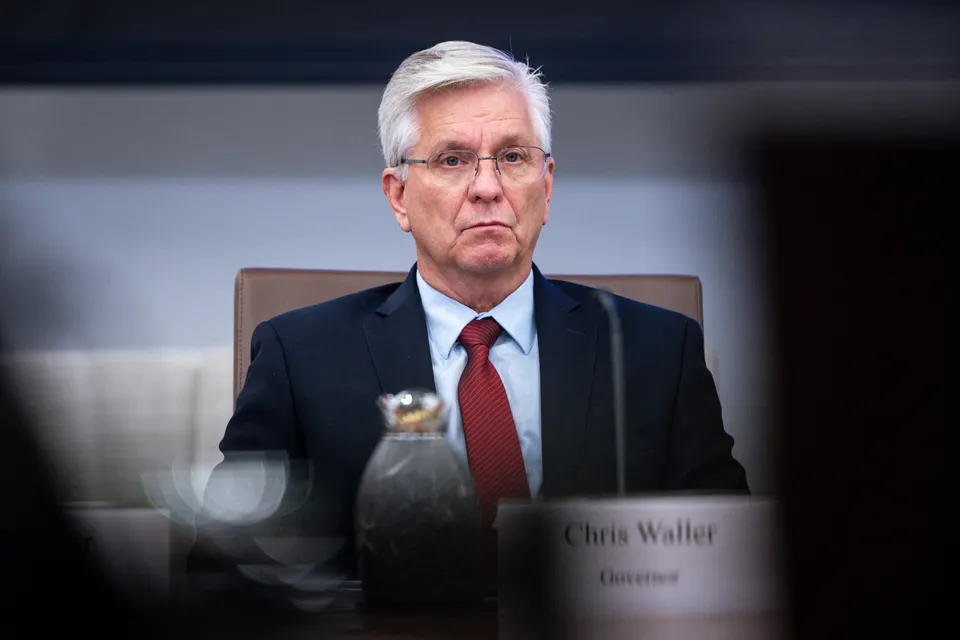


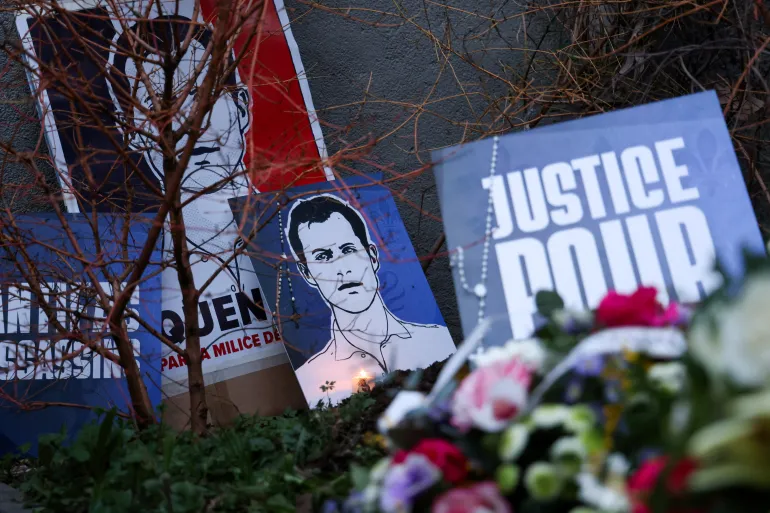

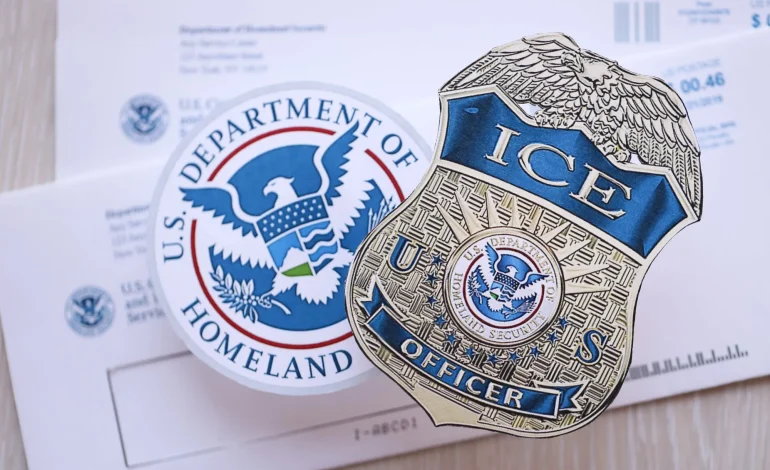




The latest news in your social feeds
Subscribe to our social media platforms to stay tuned